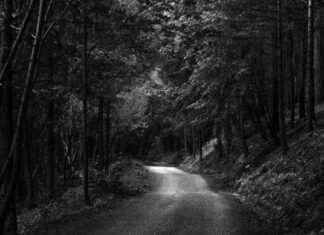“We will not move until the government announces emergency measures. » Hat screwed on his head, gloves, hood and big anorak on his back, Cédric Baron camps on the A64 motorway ramp which leads to Carbonne, about 40 kilometers from Toulouse.
Started on Thursday, the occupation mobilized between 100 and 200 farmers, depending on the time. The road leading to the Pyrenees massif was still blocked on Sunday January 21 by around a hundred tractors. “We came here following the Toulouse demonstration on Wednesday, where 2,000 people took over the city,” explains this farmer who, like most in this Volvestre region, raises cows and grows cereals.
The FNSEA as well as the Young Farmers (JA) are there, but “the movement is broader, we do not want it to be only them who carry our demands”, specifies Mr. Baron. In Toulouse, Philippe Jougla, the regional president of the FNSEA, was also booed at the end of the demonstration, while he wanted to put an end to this beginning of rebellion in the agricultural world.
Epidemic and rise in fuel
The demands are based on several points. Since September 2023, cases of epizootic haemorrhagic disease (EHD) have been reported on cattle farms in the South West. Due to a virus and transmitted exclusively by midges, this infectious disease is starting to wreak havoc. “Out of 450 animals, I have 95 cows affected,” says Sylvain Castex, breeder in Saint-Gaudens, at the foot of the Pyrenees.
To date, veterinary costs are not reimbursed and, above all, breeders face mortality or numerous cases of abortion in their herds, which represent a loss of income for the sale of calves. On RTL, Sunday noon, Marc Fesneau, the Minister of Agriculture, promised the opening, “at the end of January, beginning of February”, of a one-stop shop to “relieve cash flow”. This help is long overdue. “That’s really what triggered the major movement, in addition to other increases of all kinds or increasingly restrictive standards to respect,” explains Sylvain Castex.
Since the mid-week demonstrations, the profession has, in fact, demanded aid to compensate for the announced increase in non-road diesel (NGR). Benefiting until now from a tax exemption, the price of this fuel, which is used to run tractors and agricultural machines, farmers expect an increase of 20 cents in January, from 1 euro to around 1.20 euros the liter.
“Every month, we fill the tanks and we pay on delivery, it’s not going to be sustainable,” says Jérémy Cabal, who raises cows, sheep and poultry in Peyssies (Haute-Garonne). Also affected by midge disease, he estimates having lost 20,000 euros in income in 2023. “There is also the role of wholesalers, who hold us back with increasingly low margins, or even the late payments of customers, we’re at our wit’s end,” he confides.
Water requirements
Saturday January 20, a delegation of representatives from the agricultural world was received by the prefect of Occitanie, Pierre-André Durand. “He fooled us and didn’t make any concrete proposals,” complains Cédric Baron. “So, we are going to stay there as long as the government does not announce strong measures. And if necessary, we will block Paris,” he promises.
Elsewhere in the Occitanie region, other dams have been formed. In Tarbes (Hautes-Pyrénées), but also in Gers or Ariège, barricades or filter dams appeared on Saturday and Sunday. In Carbonne, the mayor, Denis Turrel (Socialist Party), provides his “total support for these first environmental stakeholders. On Tuesday, we will vote on a motion of support in the municipal council,” he says.
Also present on the dam, Maryse Vezat-Baronia, vice-president of the Haute-Garonne departmental council responsible for territorial development, heard the other requests from the sector. In particular the recurring need for water and requests for the construction of small dams or water reservoirs. Sunday, in the middle of the afternoon, after the grills and the distribution of coffee, everyone was ready to maintain the improvised camp under a bridge on the A64.






